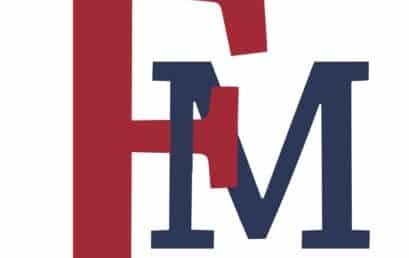MATH 305 – Linear Programming
Prerequisites/Corequisites: Take MATH-304 MATH-213 or CS-226. (Required, Previous). Credit Hours: Min: 3; Max: Description: Introduction to the theoretical, computational, and applied aspects of the subject. Topics covered include the Mathematical model of linear programming, convex sets and linear inequalities, the simplex method, duality, the revised simplex method, and several of the many applications. Computer solutions […]
MATH 230 – Discrete Mathematics
Prerequisites/Corequisites: Take MATH-201; Minimum grade C. (Required, Previous). Credit Hours: Min: 3; Max: Description: Propositional and predicate logic, methods of proof, sequences and summations, recursion, combinatorial circuits, algorithm analysis, set theory, counting techniques, Boolean algebras, and other related topics.
MATH 201L – Calculus I Workshop
Prerequisites/Corequisites: Take MATH-201. (Required, Concurrent). Credit Hours: Min: 1; Max: Description: Intensive calculus workshop for students enrolled in Mathematics 201. Students work collaboratively in small groups on problems that emphasize the key ideas of calculus. The workshop will also introduce students to technology that can automate and help visualize calculus concepts. Assessed as S (Satisfactory) […]
ENGL 418 – Advanced Technical Communication
Prerequisites/Corequisites: Take ENGL-318. (Required, Previous). Credit Hours: Min: 3; Max: Description: Designed to help students become more independent technical communicators, preparing them to work as lead writers in team projects or as independent writing contractors. Students work and study at specific client sites, identify their own documentation projects, develop an implementation plan, and then follow […]
CS 497 – Special Studies
Prerequisites/Corequisites: Credit Hours: Min: 1; Max: 3 Description: Open only to juniors or seniors with a grade point average of 3.0 or higher in their major courses. A maximum of three semester hours may be earned. Academic Committee approval required for each seminar and practicum. All individual research projects are reviewed by three faculty members […]
CS ELECTIV – Computer Science Elective
Prerequisites/Corequisites: Credit Hours: Min: 3; Max: Description:
CS 425 – Numerical Analysis
Prerequisites/Corequisites: # Take MATH-203 # Take MATH-213 or CS-226. (Required, Previous). Credit Hours: Min: 3; Max: Description: Study of techniques and types of errors involved in computer applications to mathematical problems. Topics include techniques for solving equations, systems of equations, and problems in integral calculus. Computer solutions for several problems will be required.
CS 430 – Data Base Management Systems Design
Prerequisites/Corequisites: Take CS-313; Minimum grade C. (Required, Previous). Credit Hours: Min: 3; Max: Description: Close study of the goals of DBMS, various data models and their implementations, normalization, file organization, security, and integrity.
CS 437 – Artificial Intelligence
Prerequisites/Corequisites: Take CS-318 MATH-230; Minimum grade C. (Required, Previous). | Take CS-350. (Recommended, Previous). Credit Hours: Min: 3; Max: Description: An introduction to the fundamental principles of artificial intelligence: problem-solving methods, state-space representation, heuristic search, problem-reduction techniques, machine inference, game-playing, knowledge representation, and cognitive processes. Applications of these concepts to practical problems in society will […]
CS 482 – Capstone II
Prerequisites/Corequisites: Take CS-480. (Required, Previous). Credit Hours: Min: 3; Max: Description: This course is the continuation of 480. Students will implement, test, verify, and validate their systems. Written reports and oral presentations will take place in a technical setting.
CS 401 – Programming Languages
Prerequisites/Corequisites: Take CS-350; Minimum grade C. (Required, Previous). Credit Hours: Min: 3; Max: Description: Study of formal language concepts, language syntax and semantics, language design and implementation, data types, data abstraction, control structures, procedure mechanisms, lexical analysis, parsing, and run-time organization as exemplified by a variety of programming languages and paradigms.
